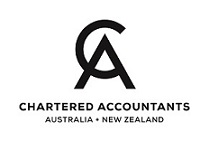Welcome to The A Firm Financial Solutions Group

Self-Managed Super Funds
Our expert SMSF Team can help you to administer your SMSF and keep it compliant.Specialising in keeping you ahead with proactive and innovative solutions, our experts will help you with tailored solutions that suit your needs for accounting and compliance, plus the ongoing administration of your super fund. Sometimes speaking to the Tax office can be a daunting task, but it doesn’t need to be, we can do that for you, and ensure you remain compliant.
Our SMSF Solutions include:
• SMSF Compliance
• SMSF Administration
• Tax Effective Strategies to Optimise Your Super Return
Like other super funds, SMSFs are a way of saving for your retirement. Generally, the main difference between an SMSF and other types of funds is that members of an SMSF are the trustees. This means the members of the SMSF run it for their own benefit
SMSFs are not suitable for everyone and you should think carefully before deciding to set one up. It is a major financial decision and you need to have the time and skills to do it. There may be other, better options for your super savings. If you are considering an SMSF for your super savings, the publication, Thinking about self-managed super (NAT 72579) provides you with some practical information. Licensed financial advisers, tax agents and accountants can also help you understand what is involved.
If you decide that an SMSF is the appropriate vehicle for your super savings, you need to ensure the fund is set up and maintained correctly so that it is eligible for tax concessions, can pay benefits and is as easy as possible to administer. Setting up a self-managed super fund (NAT 71923) provides some basic information on this and the steps you need to follow to set up the fund correctly.
The information provided is general in nature only and does not constitute personal financial advice. The information has been prepared without taking into account your personal objectives, financial situation or needs. Before acting on any information you should consider the appropriateness of the information having regard to your objectives, financial situation and needs.
Accessing Your Super
You can access your super:There are very limited circumstances where you can access your super savings early. These circumstances are mainly related to specific medical conditions or severe financial hardship.
Your preservation age is not the same as your pension age. Your preservation age is the age at which you can access your super if you are retired (or have started a transition to a retirement income stream).
Your preservation age depends on when you were born. You can use this table to work out your preservation age.
| Date of birth | Preservation age |
|---|---|
| Before 1 July 1960 |
55 |
| 1 July 1960 – 30 June 1961 |
56 |
| 1 July 1961 – 30 June 1962 |
57 |
| 1 July 1962 – 30 June 1963 |
58 |
| 1 July 1963 – 30 June 1964 |
59 |
| From 1 July 1964 |
60 |
Concessional Contributions Cap (super)
| Income year | Under 50 | 50 years to 59 years* | 60 years and over* |
| 2017/2018 | $25,000 | $25,000 | $25,000 |
| 2016/2017 | $30,000 | $35,000 | $35,000 |
| 2015/2016 | $30,000 | $35,000 | $35,000 |
| 2014/2015 | $30,000 | $35,000 | $35,000 |
| 2013/2014 | $25,000 | $25,000 | $35,000 |
| 2012/2013 | $25,000 | $25,000 | $25,000 |
Concessional contributions
Concessional contributions are contributions made into your SMSF that are included in the SMSF's assessable income. These contributions are taxed in your SMSF at a ‘concessional’ rate of 15%, which is often referred to as ‘contributions tax’.The most common types of concessional contributions are employer contributions, such as super guarantee and salary sacrifice contributions. Concessional contributions also include personal contributions made by the member for which the member claims an income tax deduction.
Concessional contributions are subject to a yearly cap.
- From 1 July 2017, the general concessional contributions cap is $25,000 for all individuals regardless of age.
- For the 2014-15, 2015-16 and 2016-17 financial years, the concessional contributions cap is $30,000 per financial year and will be temporarily increased to $35,000 for members aged 49 or over.
- For the 2013–14 financial year onwards, excess concessional contributions are no longer subject to excess contributions tax. If a member's contributions exceed the cap, the amount will be included in the member's assessable income and taxed at their marginal tax rate.
Non-concessional contributions
Generally, non-concessional contributions are contributions made into your SMSF that are not included in the SMSF's assessable income. The most common type is personal contributions made by the member for which no income tax deduction is claimed.
For the 2014-15, 2015-16 and 2016-17 financial years non-concessional contributions are subject to a yearly cap of $180,000 for members 65 or over but under 75 or $540,000 over a three-year period for members under 65.
If a member’s non-concessional contributions exceed the cap, from 1 July 2014 a tax of 47% is levied on the excess contributions. Individual members are personally liable for this tax and must have their super fund release an amount of money equal to the tax.
Non-concessional contributions also include excess concessional contributions for the financial year. They do not include super co-contributions, structured settlements and orders for personal injury or capital gains tax (CGT) related payments that the member has validly elected to exclude from their non-concessional contributions.
From 1 July 2017, the non-concessional contributions cap is reduced to $100,000 for members 65 or over but under 75. Members under 65 years of age will have the option of contributing up to $300,000 over a three-year period for members depending on their total superannuation balance.
Superannuation changes from Budget Night May 2016
1.Cutting concessional contribution caps to $25,000
2.Lowering Division 293 tax threshold to $250,000
3.$500,000 lifetime cap for non-concessional contributions
4.$1.6 million cap on “transfers” to retirement
5.Allowing catch-up concessional contributions
6.Removing the 10% rule for deductible superannuation contributions
7.Introducing the Low Income Superannuation Tax Offset
8.Removing the tax-free treatment of assets supporting transition to retirement income streams
9.Harmonising contribution rules for those aged 65 to 74
10.Remove the anti-detriment provision
11.Enhancing choice in retirement products
12.Improve superannuation balances of low income spouses
13.Legislating the objective of super
Speak to our SMSF Expert today!
Book a Free Consultation

